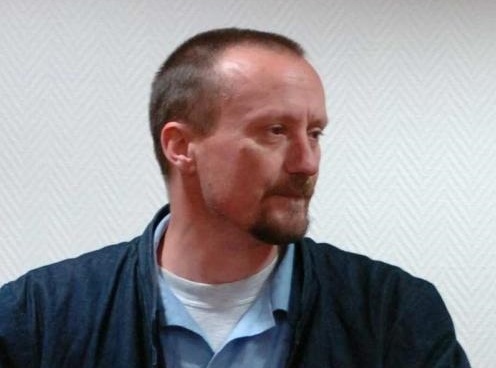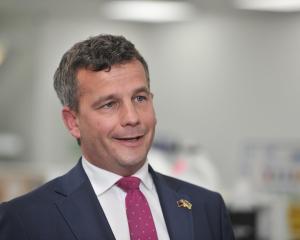
Paul Bailey was declined parole when he appeared before the Parole Board yesterday for his first hearing since 2016.
He was jailed for the rape and murder of 15-year-old Kylie Smith, of Owaka, in 1991.
A month before the rape and murder of Kylie, Bailey was charged with attempted rape in Ettrick and was on bail at the time of the Owaka 15-year-old’s death.

He forced her into his car then drove into an area of bush, where he raped and murdered her.
He was convicted for the crimes and imprisoned for life.
The Parole Board yesterday was told that Bailey had made good progress since his last appearance, but still needed to be tested in some areas.
His victims and their families met with the board earlier this week, board member Professor Phil Brinded said.
They relayed that they felt Bailey had no respect for them, and had no remorse for his actions. They believed he still posed a risk to women, and that age was no barrier.
They never wanted him released at all - but if he was, they did not want him released to the South Island.
Asked to respond to their views, Bailey said he did not know how to express his remorse because he ‘‘wouldn’t know where to begin’’.
‘‘The things I’ve done are irreversible, there’s no way I can ever fix it,’’ he said.
‘‘I would be willing to do anything.’’
While he wanted to be released to Christchurch in order to take part in a support programme, he understood why his victims would not want that.
His offending sprang from his struggle to deal with issues he experienced in his youth, leading him to turn to alcohol and self medication, he said. They also lead him to act out sexually.
At his last appearance before the board in 2016, it heard Bailey had completed a programme for child sex offenders, but was ‘‘exited’’ from the graduates’ group and had been waitlisted to undertake an extended period of individual psychological treatment for a period of two years, then would need to complete further ‘‘reintegrative’’ activities before release.
At yesterday’s appearance the board heard he had undertaken one-on-one treatment.
He had also been working ‘‘outside the wire’’ on a farm and in a piggery in the past year.
However, the last five years had not been without incident.
In 2018, he returned a positive test for cannabis.
In 2019, he was found in possession of the tip of a screwdriver. Bailey said it had been left in a glue stick he had inherited from another inmate, and he did not know it was there.
And in 2019, he was found with three cannabis joints.
He was not charged over the latter, as it transpired he had been threatened by other inmates to bring in the drugs.
The board expressed concerns about the fact Bailey had not undertaken any specific programmes to address his violence.
He explained that by saying his violence was ‘‘instrumental’’, rather than an out of control act, and that addressing his sexual offending was therefore also addressing his violent behaviour.
But Prof Brinded did not accept that.
‘‘Not to put too fine a point on it, but you shot a young girl in the head - that’s pretty violent.’’
Bailey said he did not expect to be parolled, as he expected another standown period to complete further treatment.
He acknowledged that he still had sexually deviant thoughts occasionally, and probably would for the rest of his life.
What mattered though, was that he could now deal with them, he said.
A Corrections Officer present at the hearing said she had known Bailey on and off for about 14 years, and in the past 18 months he had made the most progress she had ever seen in him.
‘‘He now comes to staff, talks about his feelings,’’ she said.
His case manager also said he had made huge progress. But, he said, Bailey still needed to be tested in some areas.
The board declined parole, and will see him again in March 2023. If he was eventually released, it would not be to the South Island.
The board also wanted specific treatment for his violence.













